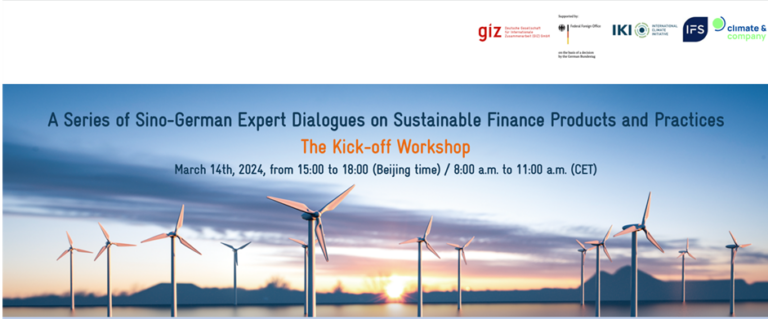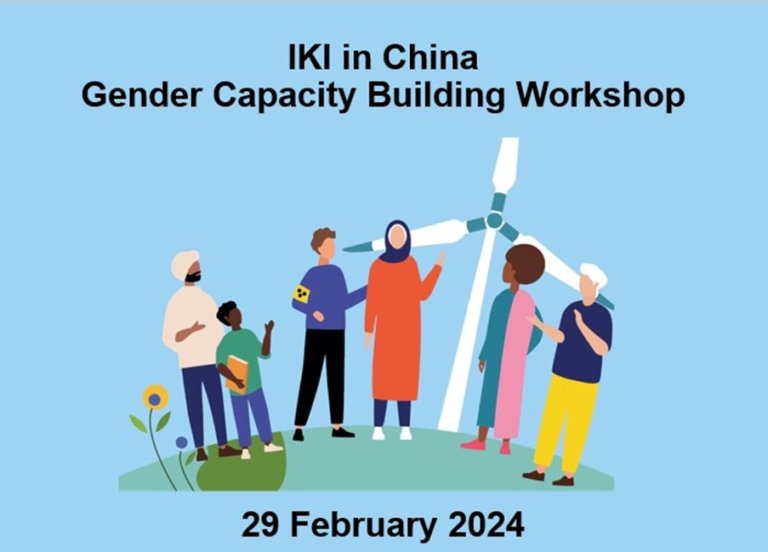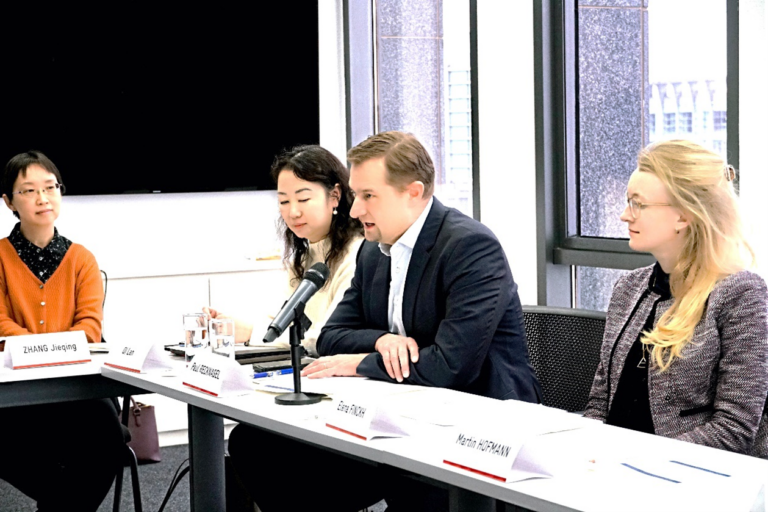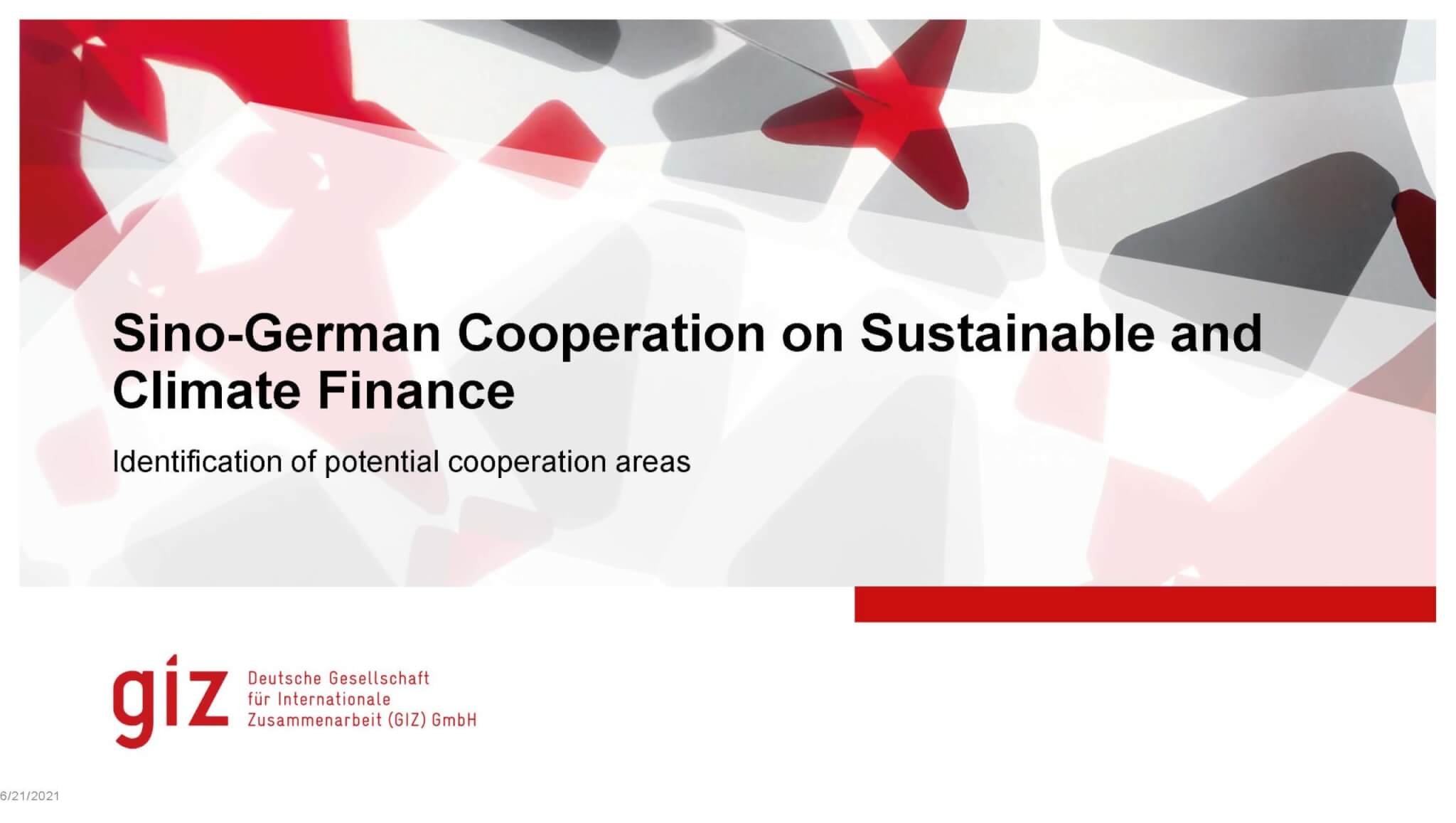
Representatives of the UNEP Collaborating Centre for Climate & Sustainable Energy Finance, which is hosted by the Frankfurt School, and the Chinese Climate Investment and Finance Association (CIFA) virtually convened on 18 June 2021 to advance an exploratory study on potential areas of cooperation in the ambit of sustainable finance into its second round.
The workshop is the latest in a series of efforts to expand collaboration between Germany and China with the support of the GIZ Climate Partnership project, which is financed by the Federal Ministry for the Environment, Nature Conservation and Nuclear Safety (BMU) via the International Climate Initiative (IKI).
During the talks, the German and Chinese side presented their respective proposals for potential fields of mutual interest in the sphere of sustainable finance. For the German camp, the Frankfurt School had identified five priorities before the talks through consultations with 20 stakeholders from the country’s real economy, public institutions, academia, and civil society. Chinese deliberations with top environmental and financial pundits had resulted in eight recommendations.
QI Lan (GIZ China) in conjunction with LIAO Yuan (CIFA) led the ensuing discussion, which featured remarks from CHENG Lin (Tsinghua National Institute of Financial Research, Research Center for Green Finance Development), LIANG Xi (Centre for Business and Climate Change of University of Edinburgh), XIONG Chengcheng (CECEP Hundred Technical Service), XU Wen (Chinese Academy of Fiscal Sciences), TAN Xianchun (Chinese Academy of Sciences), Gabriel UMANA (Frankfurt School), WANG Can (School of Environment of Tsinghua University), ZHANG Jiutian (Beijing Normal University), ZHANG Shuhan (Chinese Investment and Finance Association) and ZHANG Yuan (Climate Division of China International Engineering Consulting Corporation).
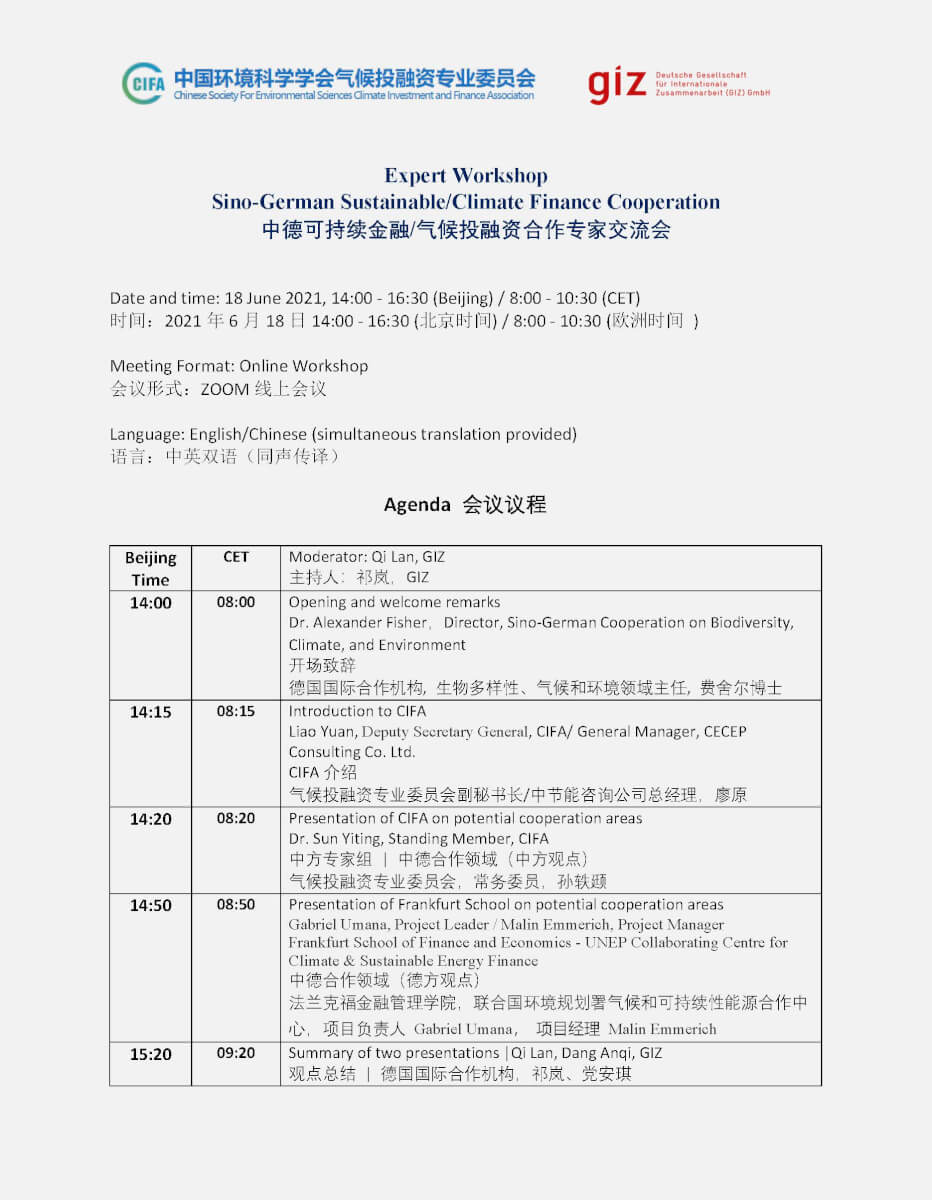
Both sides agreed that they saw ample potential for synergies and that differences in proposals were primarily due to discrepancies in expressions. The exploration of novel green financial products, increasing data collection and research, capacity-building, enhancing sustainability risk management capabilities, as well as the role of public institutions to serve as role models were pinpointed as particularly fruitful points of convergence between the parties offers. It was essential to now concretize these instances of thematic concurrence into concrete actionable projects during the next month, stressed organizer Malin EMMERICH (Frankfurt School).
The group is planning to study each other’s ideas in greater detail before the third expert dialogue. Thereupon, each faction plans to commission a feasibility study of the agreed-upon measures. The goal is to draft a Sino-German synthesis paper by September 2021 to present to the BMU and the Chinese Ministry of Ecology and Environment (MEE).
All in attendance agreed that these steps were vital if both governments are to reach their national climate goals. For the Federal and the People’s Republic’s ambitions to reach carbon neutrality by 2045 and 2060 respectively, trillions will need to be mobilized, remarked Dr. Alexander FISHER (GIZ China). The financing of necessary infrastructure, developments in technology, and social programs, for instance, are key targets which an improved market environment and uptake of green financial products are meant to benefit both countries.
To further explore the ways to reap the benefits of sustainable finance and potential means to cooperate, both sides plan to reconvene by the end of July 2021.
